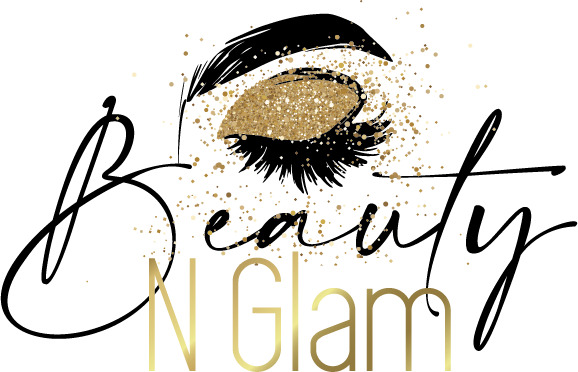Caffeine
If you can't start the day without an extra-wet double shot of a caramel-infused mochaccino (or whatever your order of choice happens to be), you'll be pleased to know that there are other aspects of your life into which you can introduce a dose of caffeine. No, we're not talking tea. Namely, your skincare regimen. Caffeine has been used in products for years, and on a basic level, it makes sense. Think of what taking a few sips of your morning coffee does to you. Those sips pep you up, boost your energy and aid your concentration—so surely a few drops of a caffeinated serum or eye cream would do the same thing, right?
Not for your concentration, obviously, but for your body. It turns out, it's not that simple. We did a little digging, and talked to Dr. Raymond Schep, the Chief Chemist for Colonial Dames Co. & Member of the CA Association of Toxicologists; and dermatologists Dr. Rachel Nazarian of Schweiger Dermatology Group and Jennifer L. MacGregor, MD, at Union Square Laser Dermatology in NYC, to find out whether caffeine works just as well in a face cream as it does in your favorite mug.
TYPE OF INGREDIENT: Anti-inflammatory.
MAIN BENEFITS: Reduces wrinkles, brightens skin, gets rid of inflammation.
WHO SHOULD USE IT: In general, people with concerns about wrinkles or aging.
HOW OFTEN IS TYPICAL USE?: Usually, it's used once a day, in the mornings.
WORKS WELL WITH: Vitamin C and ginseng for an ultra-brightening effect.
DOESN'T WORK WITH: N/A
What Is Caffeine?
Sixty-two percent of Americans drink at least one cup of coffee a day, according to a 2020 survey conducted by the National Coffee Association, and the number is only rising.1 That's just in America—which isn't even one of the top coffee-consuming countries. So it's safe to say coffee, love it or hate it, is a pretty big deal. It's also why people know of its active ingredient: caffeine. Caffeine, when ingested, acts as a stimulant; lucky for us, it has a similarly brightening effect on our skin.
But just as actively as people love coffee, others dislike it. In parallel, caffeine for skincare is a controversial ingredient. Yes, it may be a fabulous brightener, but it likely doesn't have the same effects on your skin as more sleep would. Either way, it's one of the buzziest ingredients in skincare today, no pun intended. Gradually, more brands are starting to include it in their formulas. There's even a Korean skincare brand, Beigic, dedicated to using the plant as their "hero" ingredient.
So why the sudden interest? Well, it's partially due to the things that come in coffee bean oil, partially due to caffeine itself, and mostly due to renewed interest by cosmetics companies in centuries-old home remedies.
Benefits of Caffeine for Skin
- Decreases Puffiness: "Caffeine is a great topical ingredient to improve puffiness and improve circulation in skin, so consider it a vital ingredient for under-eye puffiness," explains Nazarian. "It’s important to know that the results are not long-lasting, so use it the topical products that contain this ingredient daily for best results." We're a little surprised, but it turns out a boost in circulation really gets your skin glowing.
- Dissolves Fat: "When used as a cosmetic ingredient, especially for cellulite, it has the ability to dissolve fat below the skin by converting it to fatty acids that can then be removed by the blood circulation and metabolized to energy and carbon dioxide," says Schep. However, don't go around thinking caffeine is a way to get skinny quick—he's quick to remind us that "Topical application only removes subdermal fat, and does not remove fat around inner organs."
- Reduces Cellulite: "It is the prime ingredient of slimming and cellulite creams and is formulated with ingredients that increase blood flow to stimulate the removal of the fatty acid from the fatty layer," explains Schep.
- Contains Antioxidants: While it can't beautifully brighten your face the same way it does your mood, what caffeine does is no mean feat. By using products that contain antioxidants like the ones that are found in caffeine, you can limit the amount that your body produces free radicals, which are what cause fine lines and wrinkles.
- Helps With Collagen Production: Beigic's site claims that green coffee bean oil can help aid in collagen and elastin production through the amino acids it contains.
However, since there's a lot of hype (and resulting discourse) about what caffeine can and can't do in products, there's a lot of contradicting information. In fact, people can't always agree on what it does or doesn't do. "Caffeine is often included in skincare products claiming to help with cellulite or puffy eyes," says Paula Begoun, ingredient and product expert and founder of beloved skincare brand Paula's Choice. "But it doesn't work well for either concern. However, caffeine may have soothing properties and does provide antioxidant benefits." MacGregor has a different take: "[Caffeine] is most useful to brighten congested vessels under the eyes (constricts the blood vessels) and to de-puff puffy eyes."
Side Effects of Caffeine
Caffeine in skincare may cause redness because of the increase in circulation it brings.
How to Use It
The fact that it doesn't fully get rid of cellulite or un-puff eyes permanently doesn't mean it's never brightening: "When caffeine is combined with other ingredients, we combine it with ginseng, it can energize the skin and optimize cellular energy to help keep skin hydrated, conditioned and looking fresh," explains Lizz Starr, executive director of global product development for Origins. "Not only that, but it's a great anti-irritant and promotes skin smoothing."
So there you have it: Like most ingredients, there are limits to what caffeine can do for your skin, but it does have incredible value in your skincare routine, so it's worth stocking up on.
